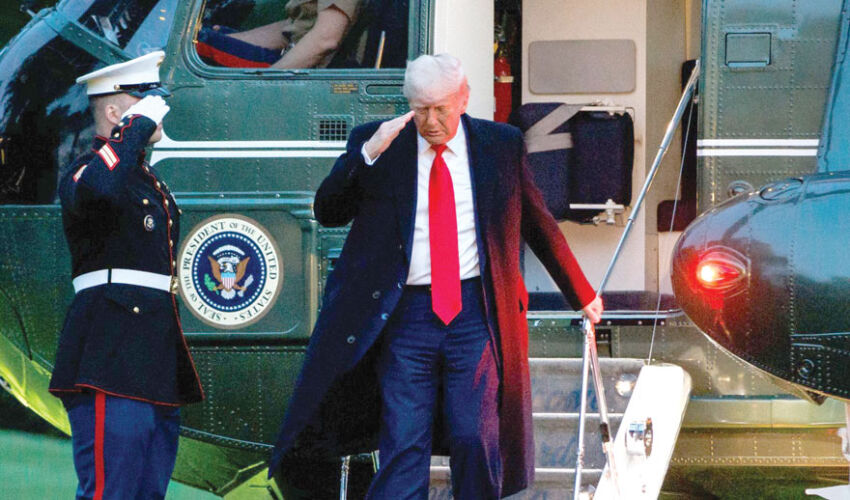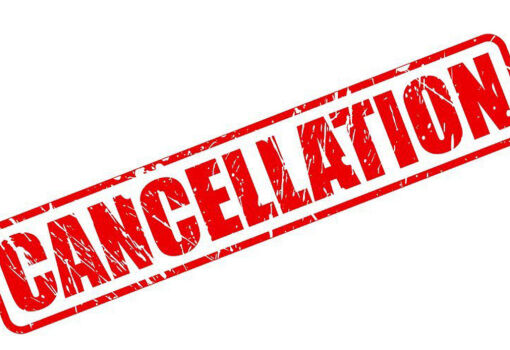
Donald Trump announced on social media that US negotiations with the EU on tariffs have come to nothing. And from June 1, the US will impose new duties of 50% on goods from the EU. Under the “reciprocal tariffs” scheme announced by the president in March, goods from the EU were to be subject to duties of 20% on most items (25% duties were imposed on cars, steel and aluminum in March). Trump subsequently replaced reciprocal duties of 10 percent with tariffs on all countries except China during a 90-day negotiation period that was to last until July 8.
On the same day Trump announced the tariffs, Brussels announced retaliatory measures against the US. The EU did not back down even after imposing 10 percent restrictions, demonstrating that it was not inclined to be intimidated by Trump’s tough threats.
The EU is no angel when it comes to trade barriers, and properly organized negotiations could lead to real improvements. However, one thing has always been unclear: how these negotiations between Washington and Brussels could lead to anything, because there was no clear justification for Trump’s imposition of tariffs on Europe – just a vague sense on the American side that everything is unfair because the US has a trade deficit with the EU. And some weird requirement that the EU must pay the US not only as compensation for any future trade deficit, but also to make up for losses from past deficits.
Trade in goods alone between the US and the EU in 2024 was estimated at about a trillion dollars. A trade war between these two huge economic blocs would cause massive disruption to international trade and finance. Trump’s first duties and threats to impose even more tariff restrictions have already caused the global and U.S. economies to stagnate in the first quarter of 2025. A full-blown trade war between the US and the EU is likely to make the situation even worse.
London’s position on this issue is not entirely clear-cut. As London is no longer a member of the EU, it is no longer subject to the 50 percent tariffs and therefore managed to strike an initial agreement with Trump to reduce US tariffs to 10 percent in anticipation of signing a more extensive trade agreement. Which is expected to be reached later this year. In the meantime, as the EU is subject to much higher tariffs than the UK, it means that some British companies may now have the opportunity to sell more goods in the US when their EU competitors are stranded. Britain could also attract long-term investment from companies that expect to be in Trump’s tariff system if negotiations for a full trade deal between Washington and London continue to progress.
London may also have an opportunity to capitalize on cheaper imports from the EU of goods that would otherwise be destined for the US. (We had an opportunity to do the same with Chinese goods, but Chancellor of the Exchequer Rachel Reeves, under pressure from British business lobbies, explicitly promised to block cheap Chinese imports.)
Be that as it may, such benefits are unlikely to offset a number of serious losses. A slowdown in US economic growth as a result of the tariffs will reduce British exports of services in the States. A duty-affected EU and a weakened global economy will also reduce opportunities for British exporters and investors.
Even our supposed benefits are not guaranteed. The EU is already claiming that Starmer’s recent deal with the US violated World Trade Organization rules (which it probably did), and the UK’s commitment to abide by those rules was included in the “reset” agreement with the EU. Trump hates the WTO and would do well to see that mechanism collapse, so he is unlikely to be swayed by any calls from London to modify the current deal to achieve WTO compliance.
London may thus find itself having to decide whether to try to hold on to its advantages in a deal with Washington, even if this is fraught with retaliation from the EU, which is unlikely to want its continued trade with the US to be reoriented to the UK’s advantage.
It’s just an economic and diplomatic mess. And it looks like it’s going to get worse – potentially much worse – before it gets better.
Andrew Lilico,
columnist for The Telegraph

